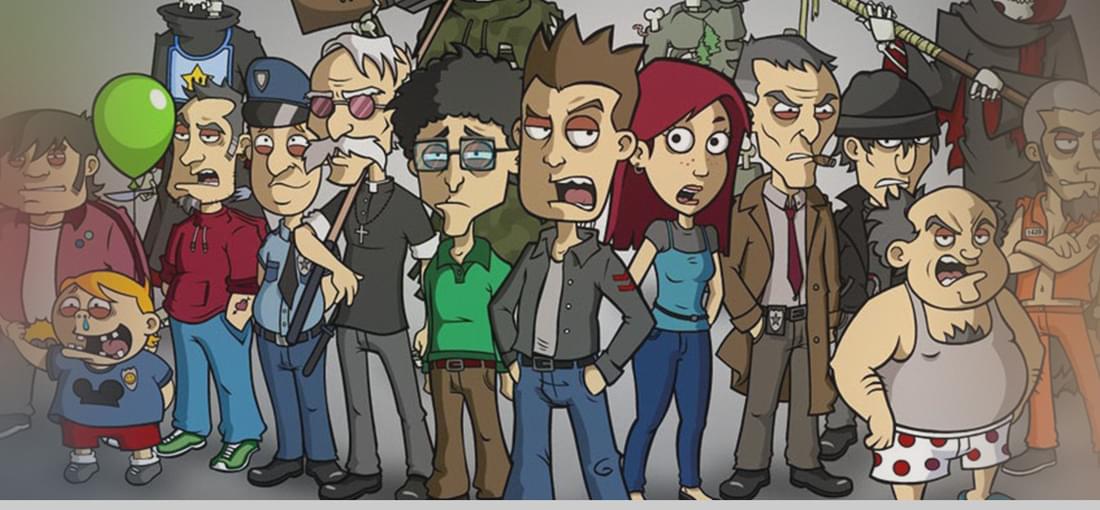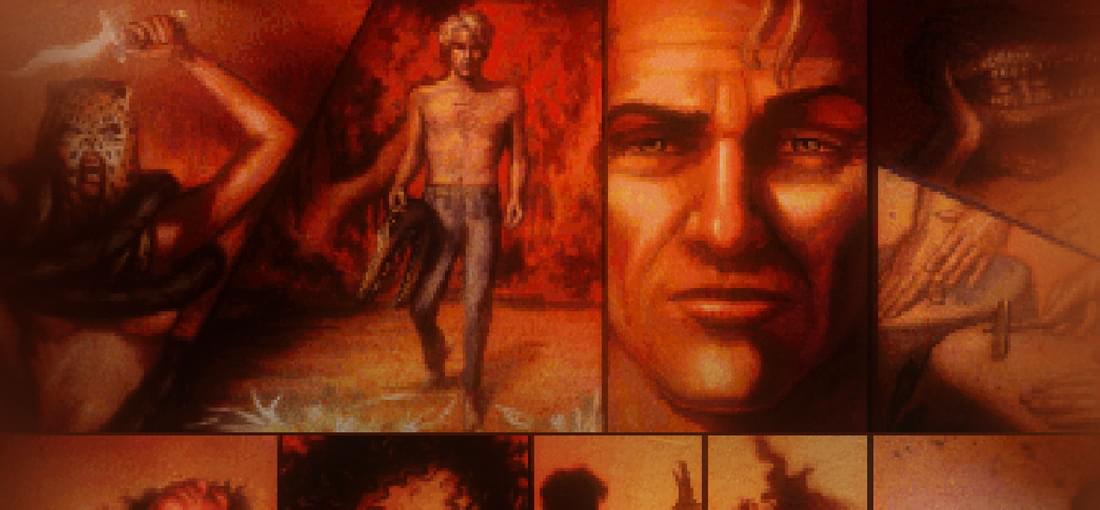

I absolutely adore the original Freedom Force and, having replayed it before replaying this, it absolutely holds up. This, even 15 years down the line, is still a disappointing sequel. It does make some improvements. The animated heads for dialogue in cut-scenes are good (though seem less impressive now, obviously), the stream-lined heroic revival system is much fairer than the original and the improved energy system is much simpler and better, with each character having an attack or two that have no energy cost, avoiding the problem the original had where you can be stuck not able to do anything while waiting for energy to recover. Unfortunately, this doesn't really make up for the problems. Characters are more likely to auto-attack when an enemy's in range, even if you don't want them to, as this means they're quite happy to walk into traps or ranged attacks. That's a minor inconvenience. The bigger issue is the campaign, which really isn't as good as the first game's. It's much shorter and yet somehow also more repetitive (Bravissimo three times, really?). The story isn't as good, with the original's wide range of Silver Age pastiches giving way to a small, boring Golden Age story. Given the plethora of WW2 games around even in 2005, I'm not sure why Irrational decided to forego all the interesting locations the original offered to focus instead on WW2 Germany. The campaign is also way too prescriptive on who you can and can't use, forcing you to use the limited and uninterested WW2 characters for a good chunk of the game. It's really hard to get enough prestige and then enough experience from missions to recruit and make decent use of all the other characters you might want to and that's even if they don't start disappearing later in the game. It's quite possible you can spend all your focus building up a handful of characters that you then can't use for the last handful of missions.
I swore off Sierra games a little while ago, but was tempted into getting this recently by reviews here saying that it's a cut above the usual and "if you're not usually a fan of Sierra games... it's a must". I feel very misled. Sure, the game has some non-linear elements and offers multiple endings, but beyond that it's a typical Sierra game. That is an adventure full of arbitrary and asinine game overs, puzzles that can only be solved by slavishly referring to the manual (I hope you like alt-tabbing!) and just a general tone of a game having a laugh at your expense. It's a fairly odd take on the Robin Hood mythos too, featuring a lot of druid magic and largely eschewing "robs from the rich, gives to the poor" in favour of "robs from the rich to give to an Austrian Duke", which kind of misses the point of the character, for me. If you don't like Sierra adventure games (as I evidently don't) this isn't going to convince otherwise.

There's very little wrong with how Randal's Monday is built. While the art style may not be to everyone's tastes (I mostly like it but some of the characters are oddly devoid of expression), the animation is smooth and well produced. The game has solid puzzles and a good interface. There's a hint system built in too (though it doesn't really give hints so much as piecemeal out a walkthrough, which isn't all that helpful if just need a nudge in the right direction). The trouble is that the story all this is supporting is naff. Randal is a horrible character. I assume they were aiming for "loveable jerk who learns a valuable life lesson" but he's not pleasant to spend time with at the start and it doesn't get much better by the end. His best friend Matt is somehow even worse and I really hate the toxic nerd-bro atmosphere they create for the game (for instance, anecdotes of terrible things they did after Phantom Menace ruined their lives by existing). It's all a bit sub-Kevin Smith, which is fitting given Randal is voiced by the guy who played Randal in Clerks and the Jay and Silent Bob cameo. I think what really bugs me more than the overlong, unlikeable story is the obsession with pop culture and adventure game easter eggs. There's barely a single screen in this game that isn't crammed full of arbitrary references to other games or pop culture, from Randal living on Threepwood Street to every bookcase or shelf being containing knick-knacks from other games (the psychiatrist's office has the pendant from Fate of Atlantis and the head of Manny from Grim Fandango for instance). It's so overdone that any novelty of recognition is quickly lost and most of them are so awkwardly executed. Matt lives on "Dr Fred Edison Street" for instance, because I guess Nexus didn't trust you to recognise just Edison Street. It sums up the game's lack of originality. The whole thing is just a blended sludge of other people's ideas.

Gabriel Knight is a passable adventure game. While it should be commended for striking a tone different from its Lucas Arts contemporaries, by telling a grounded horror story in a real world setting, the flaws in its execution stop it from being truly great. Gabriel himself is a bit too much of dick to be all that endearing as a main character, which is a problem when you have to spend so long with him. Tim Curry's voice acting doesn't help things - his New Orleans accent is awful and inconsistent, he hams it up in all the wrong places, is especially wooden when having to emote and Gabriel just ends up a lech rather than a lovable cad. The writing for his burgeoning relationship with one of the secondary characters is a particularly odious burr on an otherwise solid story. Perhaps the most curious thing about Gabriel, who we're told is a writer but is never really shown writing anything, is that he's edged out of his story somewhat. The game has an omniscient third person narration (which is SO slow), which makes Gabriel a passenger in the narrative. Tell Gabriel to look at an object and it's rarely his impression you get, but the narrator telling you what he sees. It's oddly distancing and seems exceptionally weird for an author, removing a significant part of his voice. Gameplay-wise, GK is obtuse and fussy. The interface is clunky and unresponsive - you really have to click hard to switch between actions - while puzzles require you noticing almost imperceptible parts of the environment to interact with and examine. As a Sierra game, it's also possible to die and get stuck in a dead end, which always feels unfair and requires frequent saving. There's one section with instant death that is ridiculously hard in particular. On top of this, there are serious bugs from emulation in DOSBox, including one game-breaking one. The sound levels are out of whack, with the music drowning out speech, regardless of how it's set, and always turning itself back on when you reload.